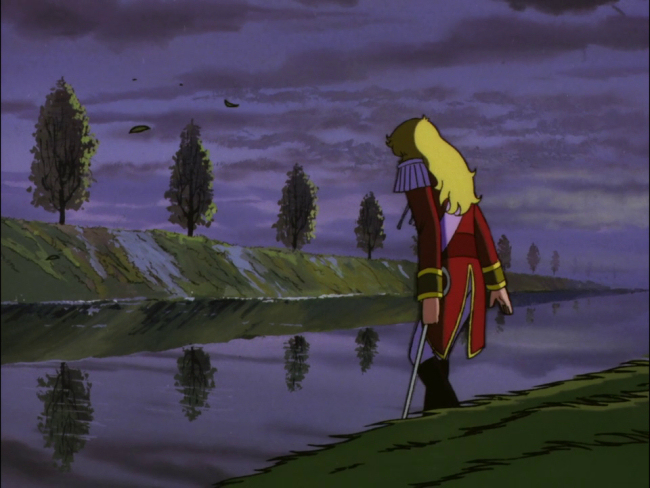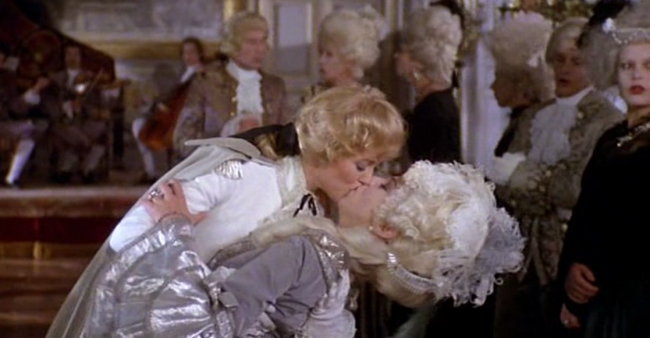
A French nobleman is so psychologically unprepared for his wife giving birth to a girl that he regards the child as male and names her Oscar. 1979's Lady Oscar (ベルサイユのばら "The Rose of Versailles") sets its drama of gender identity against the turbulent backdrop of the French Revolution, following the manga on which it's based. It's a surprisingly competent production with some effective dramatic scenes but sorely lacking in the action or emotional effectiveness found in the anime.
A Japanese and French co-production directed Jacques Demy (director of The Umbrellas of Cherbourg), it was virtually unseen in France. In Japan, it was unpopular and criticised for making Oscar too feminine.
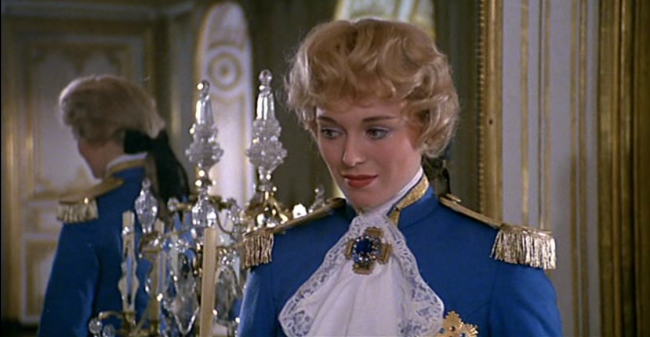
Oscar's played by an English actress--for reasons I don't understand, it's an English language film--named Catriona MacColl, in her first role. I'm familiar with her from the Italian horror movies she made after this, like City of the Living Dead or The House by the Cemetery. She certainly physically resembles the Oscar of the manga and anime but you'll never mistake her for the great swordswoman she's supposed to be. Nor for a moment does she ever seem like someone who grew up trained in masculine manners and exercise.
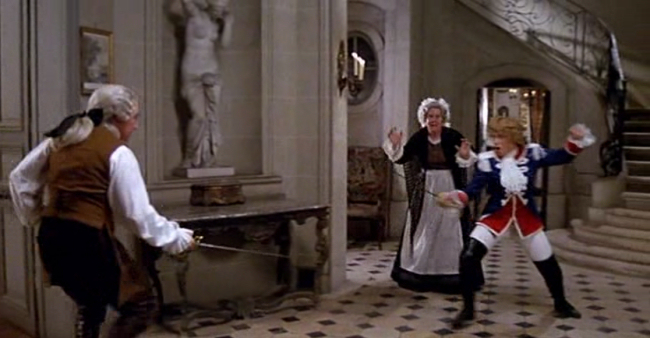
But the performances and direction are good enough that some of the romantic chemistry between her and the various handsome men in her life is sometimes sweet, sometimes perverse as the men delight in how thin her facade is. I wish the movie had spent more time on her relationship with Marie Antoinette (Christine Bohm), who's a pretty and intriguing character here, but far less sympathetic than she is in the anime. In fact, this is the most unsympathetic portrayal of Marie Antoinette I've ever seen. I kind of appreciated Demy's boldness in showing a capricious young woman more concerned with hiring hunters for their physical attributes or building an artificial volcano than she is even allowing her own mind to even recognise the fact that people are starving in the streets.
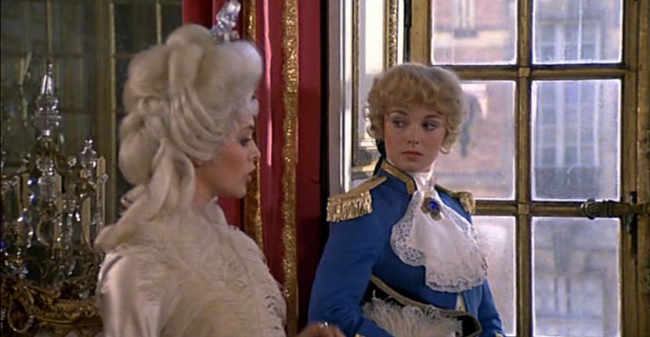
The film was shot entirely on locations in France, at Versailles and other historic buildings. The movie's certainly not lacking in beauty.











